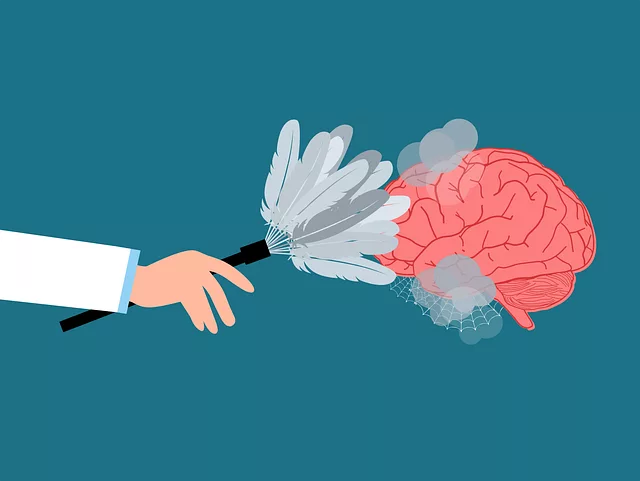Kaiser Permanente Boulder provides comprehensive mental health services tailored to meet the unique needs of Boulder residents. Their holistic approach addresses emotional regulation, stress management, anxiety, and trauma—root causes of substance abuse—alongside physical dependencies. With a focus on mental health awareness, stigma reduction, and accessible care, Kaiser Boulder offers dual diagnosis programs, cultural competency training, and early intervention services to prevent chronic substance misuse and build a healthier community.
Substance abuse poses significant risks, impacting individuals’ physical and mental well-being. This article explores comprehensive risk reduction strategies to mitigate these dangers. We delve into understanding the complexities of substance abuse and its associated risks, focusing on the role of mental health services in prevention. With insights from Kaiser Permanente Boulder’s overview, we discuss an integrated approach, highlighting strategies for early intervention and community engagement as key elements in reducing substance abuse within our communities. Discover how these tactics contribute to a healthier, safer environment, especially considering Kaiser’s offerings in Boulder for mental health support.
- Understanding Substance Abuse and Its Risks
- Kaiser Permanente Boulder: Mental Health Services Overview
- Integrated Approach to Risk Reduction
- Strategies for Prevention and Early Intervention
- Support Systems and Community Engagement
Understanding Substance Abuse and Its Risks

Substance abuse is a complex issue that involves the harmful use of drugs or alcohol, leading to significant impairment or distress. It’s crucial to understand that this isn’t merely an individual choice but a multifaceted problem rooted in various factors, including biological, psychological, and social elements. In Boulder, where Kaiser offers mental health services, recognizing these risks is the first step towards prevention and support.
Does Kaiser offer mental health services Boulder residents rely on to address underlying issues contributing to substance abuse? Absolutely. Emotional healing processes and empathy-building strategies play a vital role in treatment plans. By focusing on emotional regulation, professionals can help individuals manage stress, anxiety, or trauma that may drive them to substances for coping. This holistic approach ensures that the roots of addiction are addressed alongside the physical dependence, fostering long-term recovery.
Kaiser Permanente Boulder: Mental Health Services Overview

Kaiser Permanente Boulder is renowned for its comprehensive mental health services, addressing a wide array of emotional and psychological needs. The organization prioritizes mental health awareness and offers specialized care tailored to individual and community contexts. Their approach includes therapy options, support groups, and educational resources designed to foster emotional regulation and Mental Illness Stigma Reduction Efforts.
With a dedicated team of mental health professionals, Kaiser Boulder provides an accessible and supportive environment for individuals seeking help. These services are structured to promote healing and resilience, acknowledging the interconnectedness of physical and mental well-being. By focusing on holistic care, Kaiser Permanente Boulder ensures that members receive the tools and resources necessary to navigate life’s challenges effectively.
Integrated Approach to Risk Reduction

An Integrated Approach to Risk Reduction for substance abuse involves addressing multiple facets simultaneously, rather than focusing on individual components in isolation. This holistic strategy recognizes that mental health and substance abuse are often interconnected, with underlying emotional and psychological factors playing a significant role in addiction. By integrating services that cater to both, such as those offered by Kaiser in Boulder, we can significantly reduce risks and improve outcomes for individuals struggling with these issues.
Kaiser’s comprehensive range of mental health services in Boulder underscores its commitment to this integrated approach. This includes specialized programs tailored to address dual diagnoses, emotional healing processes, and stigma reduction efforts aimed at fostering a more supportive environment for those seeking help. Furthermore, healthcare provider cultural competency training ensures that patients from diverse backgrounds receive care that is sensitive to their unique needs, enhancing the overall effectiveness of risk reduction strategies.
Strategies for Prevention and Early Intervention

Prevention and early intervention are key strategies in mitigating substance abuse within communities, including Boulder, where Kaiser offers comprehensive mental health services. The first step involves educating individuals on the risks associated with substance misuse and promoting positive thinking. This can be achieved through various outreach programs, workshops, and even a Mental Wellness Podcast Series Production, which can help dispel myths and provide accurate information about addiction. Encouraging self-care routines development for better mental health is another effective approach; teaching individuals to recognize and manage stress, anxiety, or depression without resorting to substances can significantly reduce the likelihood of abuse.
Early intervention programs target at-risk youth, focusing on skills building, peer support, and connecting them with available resources like counseling services. By identifying potential issues early on, communities can provide necessary support before substance misuse becomes a chronic problem. These strategies not only help individuals but also foster a healthier, more resilient community overall.
Support Systems and Community Engagement

Building a strong support system is an integral part of any effective risk reduction strategy, especially when addressing substance abuse issues. Community engagement plays a pivotal role in providing a safety net for individuals seeking recovery. Organizations like Kaiser Permanente Boulder offer comprehensive mental health services, including counseling and support groups tailored to help those struggling with addiction. These programs foster a sense of belonging, encouraging individuals to stay connected and engaged, which is crucial for maintaining sobriety.
In the context of risk management planning for mental health professionals, creating a supportive environment extends beyond service provision. Encouraging self-awareness exercises and burnout prevention strategies among healthcare providers is essential. By prioritizing their well-being, these professionals can better support clients navigating substance abuse. This holistic approach considers the interdependence between provider resilience and client outcomes, ensuring sustainable recovery pathways within the community.
Substance abuse poses significant risks, but a comprehensive approach to risk reduction can make a substantial difference. By understanding the issue and utilizing strategies such as integrated mental health services, early intervention, and community engagement, we can effectively prevent and mitigate substance abuse. Kaiser Permanente Boulder offers robust mental health services, emphasizing an integrated approach that addresses both mental and physical well-being. Such initiatives are vital in fostering healthier communities. Through proactive measures and support systems, it is possible to navigate individuals away from the destructive path of substance abuse, promoting a safer and more resilient society.






